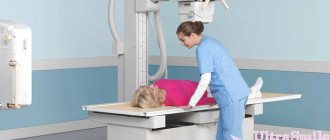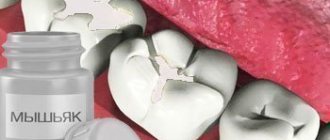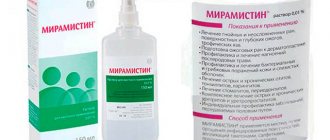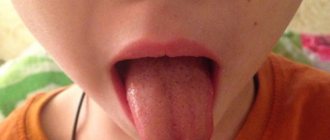At what age is the risk of swallowing a tooth high?
A tooth can fall out and be swallowed as a result of injury, such as an impact from a fall. In such a situation, complete dislocation is possible, when all periodontal fibers are torn and the tooth loses connection with the socket. However, such cases are rare. Most children swallow baby teeth that fall out before the permanent teeth appear. The roots of temporary teeth gradually dissolve, and they fall out painlessly, sometimes even unnoticed. The child swallows them just as unnoticed. This often happens during eating, when the chewing force separates the loose tooth from the gum, and along with a lump of food it is sent into the esophagus.
The most likely age for swallowing a tooth is the period of change from a temporary bite to a permanent one. Each group of teeth changes at a certain age:
- change of central incisors - 5–9 years;
- change of lateral incisors - 7–10 years;
- change of first premolars - 9–13 years;
- change of second premolars - 9–14 years;
- change of fangs - 9–14 years.
Moreover, even such approximate dates are not always observed: they can be influenced by diseases suffered in childhood, nutritional patterns, water quality, and climatic conditions [1, 2].
It should be remembered that the timing of the eruption of both primary and permanent teeth may vary.
A deviation in one direction or another within 6 months is considered normal for a particular child. Vinogradova T. F., Doctor of Medical Sciences, Professor [2]
Why can baby teeth fall out unnoticed?
A 5-year-old child already has a full set of primary dentitions and is already beginning to loosen for prolapse. It would seem that the most unpleasant period has passed, the child no longer suffers from the unpleasant sensations that bother him during teething. But this may not be the easiest time for parents.
When baby crowns fall out, there is a risk that they will be accidentally swallowed. This happens because they begin to loosen. When applying pressure while chewing, there is a high probability that it will fall out and enter the stomach along with food. Moreover, even the child does not immediately notice that he has parted with his incisor.
During the period of change in bite, the crowns become very loose and are ready to fall out at any moment. That is, it is physiologically designed in such a way that it should not cause unpleasant sensations. For this reason, the baby does not notice the “loss”.
However, after the prolapse, you can see the hole from which the blood comes. It's not much, but it's noticeable. The hole requires more attention than a swallowed piece of crown.
Is it dangerous if a child swallows a baby tooth?
The likelihood of swallowing baby teeth is quite high, but such cases do not pose a health hazard. Like other small foreign bodies that have entered the esophagus, the tooth will be removed from the body naturally after passing through the digestive tract. The roots of such teeth have already resolved, all edges are smoothed, and they cannot injure the mucous membranes [4]. Teeth also do not contain substances hazardous to health, and they do not have a toxic effect on the stomach or intestines.
Dentists recommend not to interfere with the natural physiological processes of the body. You should not give a laxative or especially try to induce vomiting: it can cause the tooth to be inhaled into the lungs [5]. And the most important rule is not to panic and not to fuss. A stressful state will inevitably be passed on to the child and harm him more than a swallowed tooth.
What can be done and what should not be done?
It is difficult for the victim himself to assess how deeply the tooth has sunk. Independent attempts to remove it from the esophagus will lead to a gag reflex and, possibly, new damage to the oral cavity.
What not to do:
- Trying to reach the tooth with your fingers and especially with foreign objects
- Panic and try to “cough up” the interfering object
- Do nothing and hush up the problem, expecting it to go away on its own
Examine the gums if possible. If a tooth has fallen out or crumbled, then you should know what condition it was in in the near future. A small analysis will help you understand how big the chip is now in your throat; careful palpation of the gums from below will help you determine whether the root remains inside.
If there is no sensation of pain in the larynx or esophagus, then the natural way of exiting the swallowed tooth is most likely and there is no reason for concern
With all this information, go to your dentist or immediately to a traumatologist if you have difficulty breathing. The specialist will tell you what to do now, and at the same time will diagnose other teeth, warning of possible danger.
First aid for a child if he has swallowed a tooth
The first step is to calm the child down and explain to him that nothing bad happened. This is especially true if the wound is bleeding, since many children are afraid of blood and may consider it a sign of danger. Next you should tackle the hole:
- Biting on a cotton swab for 5–10 minutes helps stop the bleeding. If the bleeding does not stop, you should consult a doctor.
- To disinfect the hole, you can rinse with saline solution or chamomile infusion. It is not allowed to use strong antiseptic and anti-inflammatory drugs without the recommendation of a dentist.
- For healing to occur, the hole needs to be kept at rest: do not eat anything and try not to drink for two hours. Until the next day, it is better to avoid irritating foods: hot, sour, spicy [3, 6].
To facilitate the passage of the tooth through the digestive system, it is worth limiting activity. After the two-hour break in food is over, offer your child raw vegetables, fruits, and whole grains - they will help the tooth move [5].
Typically, it takes 12–14 hours for a tooth to pass through the gastrointestinal tract. If you want to control its output, you can give your child some corn kernels. They leave the intestines unchanged, and their presence in the stool will be a signal that the tooth has also left the body [5].
Should I worry?
Panic attacks are inappropriate here, because the unit could be very unsteady. Therefore, during meals, when children put pressure on the organs, they often fall out. Mothers are worried that they will damage the baby’s internal organs. Dentists say that when a child swallows a tooth, it is not dangerous for him. The structure of temporary crowns is fragile and soft. Therefore, when the baby ate a tooth:
- Parents should take this calmly.
- Mothers should feed their child a hearty breakfast or lunch.
- Don't miss your baby's potty trip.
- Check to see if there is a tooth in the pot.
Mothers calm down when “the missing item is found.” True, this does not always happen. There may be no crown in the pot. Where is she? Milk organs are not durable. If there is a calcium deficiency in the body, the chewing organ could be digested. In this case, the body has replenished the deficiency of a useful mineral. The next day you need to take tests to determine the amount of calcium in the body. Contact your pediatrician, he will assess the situation and prescribe therapy.
The child swallowed a lost baby tooth, which means that a bleeding wound could have formed at the site of growth. First of all:
- Have your baby rinse his mouth with an antiseptic solution without alcohol or clean water.
- Blood can be removed from the wound if the child bites on a gauze swab.
- After this, do not feed the little one for 40-50 minutes. Don't give him hot or spicy food for a while.
- If the baby has experienced a fright, calm the child down, be kind and gentle with him. Explain to your child that it is safe.
It is important that parents do not make a tragedy out of this event. Approach this issue with optimism. Most children are afraid to pull out loose crowns, but they constantly touch them with their hands and tongue. It is important that the child does not choke when the “pearl” comes off.
When to worry
Lost teeth in the digestive tract are harmless. However, in very rare cases, swallowed small objects, including teeth, may enter the respiratory tract instead of the esophagus. This situation carries serious risks and may require emergency medical attention. To rule it out, monitor your child after swallowing a tooth. You should be alert to the following signs:
- difficulty swallowing;
- increased salivation;
- cough or wheezing;
- neck or chest pain;
- nausea and vomiting;
- blood in vomit or stool;
- abdominal pain;
- heat.
Any of these symptoms is a reason to immediately consult a doctor [7].
What to do if a child swallows a foreign body - actions of parents
Babies are very inquisitive, and when they begin to move independently, the risk of swallowing a foreign body increases significantly. Doctors note that most often various foreign objects are removed from the body of children aged from 1 year to 5-6 years - this period is characterized as cognitive. Some pediatricians and surgeons even have a “museum” of foreign bodies extracted from children’s bodies. The most common ones are balls, chewing gum and tablets.
If the first two, in principle, do not pose a danger, then when swallowing the tablet, you will need gastric lavage and detoxification therapy - this is the doctors’ instructions. What should parents do if a child swallows a foreign body?
What you should absolutely not do
First, parents should not shake their baby, turn him upside down, or actively hit him on the back. Such actions can lead to the rotation of a foreign body in the esophagus and its entry into the respiratory tract - these conditions are potentially life-threatening for the child. If a child swallows a piece of an object, it may have sharp edges, and in this case, any concussions can lead to injury to the esophagus, stomach or respiratory tract (if the body has moved into them).
Secondly, you should not try to push a foreign body deeper into the body - for example, parents often give a child a crust of bread in the hope that by swallowing it, the baby will move the object down into the stomach, and then it will leave the body naturally. But if a baby swallows glass with sharp edges, then by forcing it through the digestive system, you can injure not only the esophagus, but also the stomach and even the intestines.
Thirdly, you cannot feed or give your baby water, including breast milk. Food or liquid that enters the gastrointestinal tract will “carry along” a foreign body, and the result of this can be disastrous, including intestinal perforation.
One more nuance - you cannot experiment and try to remove a foreign body from the throat with a magnet, fishing line or a thin long object. For example, a child swallowed a coin and it is in his esophagus - the baby will complain of pain in the chest area and the inability to take a full breath. In this case, it is strictly forbidden to try to “pull out” a coin with a magnet, and you cannot knock on the child’s chest - the foreign body is unlikely to come out, but it is quite possible to worsen the situation.
What to do if a child swallows a foreign body - the right actions
As soon as parents notice that the baby has swallowed an object, they need to call a doctor and wait for qualified help. You can do the following:
- If the baby is coughing, choking and slightly suffocating, then you need to lay him on your knee so that the upper part of the body is lowered, and tap the edge of your palm or fingers on his back between the shoulder blades (the blows are directed from the bottom up).
- If a child under the age of 1 year breathes smoothly, but coughs a lot, then he should be placed face down on the parent’s hand, his head should be slightly lowered, and the index and middle finger of the hand (support) should be placed in the child’s mouth.
When opening the child's mouth, the baby is simultaneously lightly tapped on the back. Please note: the described measures can only be carried out if breathing is impaired, since sharp tapping can displace the foreign body so that it blocks the airways or causes severe swelling. If there is a suspicion that the child has swallowed a bone, then such actions are also prohibited. - The baby needs to be calmed down and everything needed to be prepared for the trip to the hospital.
If a small child swallows a battery, you should immediately seek qualified medical help; you cannot take any action on your own. The dangers of swallowing batteries are as follows:
- When the battery enters the stomach, it oxidizes and releases aggressive substances, which leads to chemical burns to the gastric mucosa.
- When the battery oxidizes, ulcers can form on both the stomach and intestinal walls, and this is a condition that threatens the child’s life.
- If a child swallows a disk battery, it poses a particular danger in the esophagus, as necrosis and rupture of the esophageal wall can rapidly develop.
Based on materials from the site dobrobut.com
Preventive measures
To reduce the risk of swallowing, ask your child to report loose teeth immediately. Then you can monitor the process of loosening and intervene if necessary. If at least one milk tooth is mobile, every time before eating it is worth reminding the child to be careful and try not to bite or chew with this tooth.
It would also be a good idea to take measures to prevent impacts that could lead to teeth being swallowed. Active play of young children should be supervised and they should be provided with high-quality equipment for sports: masks, helmets, and mouthguards.
Binge eating
This mistake is made by people who are not familiar with the structure of the digestive system. The only option when this solution can be partially correct is that the tooth is stuck at the end of the esophagus and you feel it somewhere above the stomach.
You can eat a small piece of black bread (white is more sticky), fruit or vegetable (preferably with a dense consistency). If after this the sensations do not change in any way, try again in half an hour. You can drink water.
Important! Feelings can be distorted by worry and anxiety - there have been cases when people, frightened by far-fetched threats, feel pressure and scratches from within that are not there. You can check your condition with a moderate sip of water.
In addition, a swallowed crown or other metal element of dental corrective structures will not be visible on an x-ray due to the large amount of food in the stomach and waste in the intestines.
What do doctors think about this?
There is a risk if you choke. Therefore, it is still better to prevent the situation. To do this, dentists recommend pulling out the crown when it is already loose enough. You need to mentally prepare the owner of the milk bite for this and try to do it in the form of some kind of game with subsequent rewards.
During what periods should you be prepared for the loss of milk crowns:
- at 4-5 years the upper front incisors become loose and fall out by the age of 7;
- at 7-8 years old, this fate awaits the lower incisors;
- at 9-11 years old, molars change;
- From 10 to 12 years, fangs and the second pair of molars fall out.
The swallowed piece is passed out in the stool. This happens within 1-3 days. If this doesn’t happen on the first day, it’s okay, because everyone’s chair is adjusted differently. There may not be a chipped crown in the feces at all, because there is a possibility of it being digested.
A child may lose a tooth prematurely due to injury. There is a possibility that the crown will only be partially chipped and the child will swallow the fragment. In this case, you need to contact your dentist so that he can examine the damaged tooth and smooth its edges to prevent injury to the mucous membrane.
If a child has lost a tooth and behaves restlessly, refuses to eat, or experiences deterioration in health, you should consult a doctor. While the situation is safe, there may be exceptions. It’s better to play it safe and check with your doctor about the possible risks.
Inducing vomiting
Inducing vomiting is a very bad idea. If a tooth is stuck in the esophagus, this may not help, and getting it out of the stomach at the cost of dehydration and possible digestive upset is too costly in terms of the resources of the human body. It should be remembered that vomiting is an emergency defense mechanism, and not a normal state of the body. To cause it yourself means to consciously undermine your health.
Even if the tooth really got stuck on the way from the esophagus to the stomach, a sharp influx of semi-digested food from below will push it with enough force for the sharp edges to leave a scratch on the mucous membrane.
What to do in the first minutes
When you notice that a tooth is missing, it is necessary to provide first aid to the child. To do this, ask him to rinse his mouth with boiled water. Then give the baby a gauze pad, let him bite it, this will remove the blood from the hole. Do not let your child eat for an hour. After another hour, the baby should refrain from spicy and hot foods.
And most importantly, if you see that a child has swallowed a tooth while sleeping or eating, do not panic, parents’ fear is easily transmitted to children. Be calm and don't highlight this as a tragic event. Take this situation with optimism. Let this be a family story about how your entire family searched for lost fangs in a pot.
What to do if a child swallows a tooth?
Children are the ones who swallow teeth most often - they chew faster, are in a hurry and know little about handling sick and weak teeth. A parent may not know for a long time that a child’s molar is weak or crumbling; children often hide such information in order to delay a visit to the dentist.
Young children lose their baby teeth, which they often accidentally swallow.
It is better to explain to the child in advance that there will be many more teeth that fall out and you should handle them more carefully. A tooth scratching the throat will cause a baby much more anxiety than an adult - he may start crying, unable to get rid of the irritant.
Are there medications that will improve the situation?
There are no solutions aimed at solving this specific problem. Such medications are not sold because the problem is not significant and will soon resolve itself or with minimal help from doctors.
Under no circumstances should you use drugs that artificially speed up digestion - this will cause no less harm to the body than vomiting.
Dehydration, stopping the healthy digestive process, pain, loss of appetite - all these symptoms can appear if you take the drug without appropriate indications.
If the tooth is severely stuck and scratched, no medications will help - go to the emergency room, where foreign objects are pulled out of the esophagus every day. This can only be done by a professional physician who knows how the esophagus works and will not damage it. If you don’t want to wait in line at the clinic and search for the right office, you can find a private dental office - usually there is at least one of these in every area.
When do the first teeth fall out?
The kid brags about the first “pearl” that fell out (photo: www.lecheniedetej.ru)
To avoid panic attacks, parents need to know when to expect the first baby tooth to fall out. The process of replacing temporary teeth with permanent ones goes like this:
- The very first, by the age of 5, are the upper and lower (central) incisors to become loose. They fall out by the age of seven.
- At 7-8 years of age, the baby will lose the lower and upper lateral incisors.
- Next, a pair of small molars will be replaced in the mouth (from 9 to 11 years).
- The baby's primary canines and second molars are the last to fall out. This process occurs between the ages of 10 and 12.
When changing temporary teeth to permanent ones, children can swallow a loose tooth at any time.
Is there danger in a swallowed baby tooth?
It is most likely to swallow a tooth while eating (photo: www.images.aif.ru)










